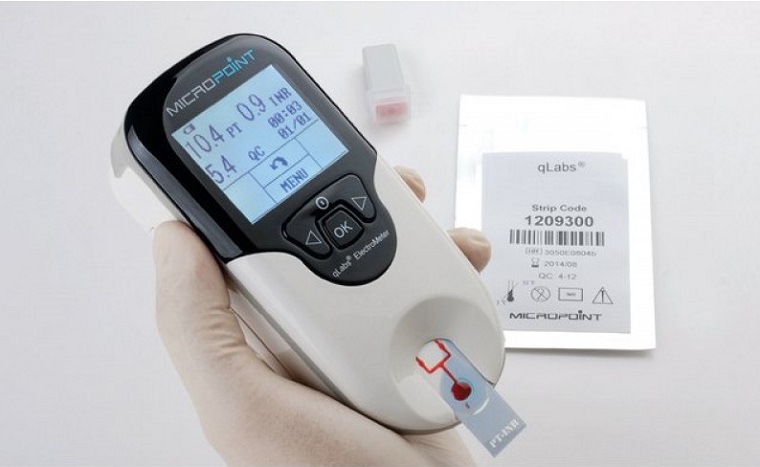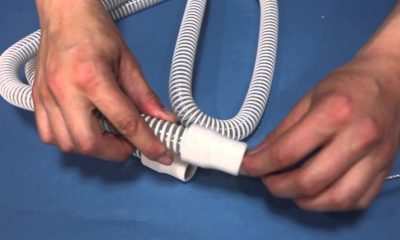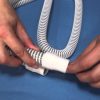Health & Beauty
Coaguchek: Benefits of Measuring Your INR Values at Home
It’s estimated that 30,000 Australians develop thrombosis every year. The condition is the result of a blood clot within a blood vessel, which prevents blood from flowing normally through the circulatory system. The most common treatment for blood clots is warfarin. It’s a medication that blocks the formation of vitamin K-dependent clotting factors, which are substances in the blood that cause clotting.
Highly effective at preventing blood clots from forming, but like other medications, Warfarin also has its side effects; one of them is it can cause bleeding. So in order to make Warfarin is working properly, patients on that medication need routine blood tests to check a level called the INR. IRN (Internationa Normalized Ratio) levels are measured with a blood test called PT (Prothrombin Time). This test measures how much time it takes for the blood to clot, helping determine if the patient is getting the right dose of warfarin. So, if you’ve been diagnosed with thrombosis and prescribed Warfarin, you’ll need routine blood tests to check your INR level.
One of the most convenient ways to do that is by measuring your INR values at home. You can self-test by using the Coagucheck device, which is a portable hand-held device designed to measure the INR in a drop of blood. This offers you the convenience to test your INR levels from the comfort of your own home, at work or while away on a holiday or business trip.
Are INR Machines Accurate?

INR machines have been in use for over two decades and they are generally considered safe. The key to achieving reliable results is to ensure that appropriate technique, store and care for the device and test strips are performed.
When shopping for a Coaguchek device, ask about different training options available to patients. In some areas, training centres have been set up to give personal training to patients on how to use their INR machines. Coaguchek also offers phone support for its patients. Their support staff are trained to walk patients through setting up their meter and performing their first test.
Do INR Machines Need to Be Calibrated?
The Coaguchek device doesn’t need calibration – it’s performed automatically upon inserting the code key from the strip vial. To ensure the device provides correct measurements, the first time you use the device, you must set the correct date and time. Instructions for setting the date and time can be found in the device user manual.
Are INR Machines Covered by Insurance?
Insurance coverage for in-home testing varies from plan to plan. Many insurance companies cover the cost of home testing but some patients may have a copay or some out-of-pocket expense.
What Are the Benefits of In-Home INR Testing?
- Convenience – You can test your INR levels without the need for frequent trips to a lab.
- Simplicity – Instead of a full blood sample, in-home testing only requires a finger stick.
- Efficiency – In-home testing may lead to fewer blood clots.
With in-home testing, you’ll be more likely to check your INR levels more often than with lab testing. This’ll allow your Warfarin dosage to be adjusted as necessary to stay in the correct INR range. But it’s important that you understand that in-home testing is not for everyone. If you are interested in in-home testing, the first thing to consider is the reason for your anticoagulation. That is because there are some blood disorders that interfere with how the device measures the INR ratings, such as antiphospholipid syndrome (APLS). Patients with this condition are recommended to avoid in-home testing.
How Often Should In-Home INR Test Be Performed?

Your health care provider will give you recommendations about how often you should perform the test. In-home testing is typically recommended every 1 to 4 weeks. It’s essential that you talk with your doctor before making any changes to your medications, which could affect your warfarin dosage or monitoring schedule. Also, make sure to inform your health care provider about any changes to your general health and diet, as certain foods
Warfarin is particularly sensitive to certain foods, such as leafy greens and some herbal supplements as well as alcohol which can affect your body’s response to the medication. To get the most of your treatment you should keep healthy eating and avoid drinking alcohol.
When to Contact Your Health Care Provider?
Your doctor will tell you the appropriate INR range for your condition. If you obtain an INR result outside your INR range, you should immediately contact your doctor.
INR results obtain in in-home devices that are above 4.5 are generally less reliable than results lower than 4.5. So, if you obtain an INR result above this range with your in-home testing, your doctor may ask you to have your blood tested by a laboratory to make sure your INR test result is accurate and you are getting the right warfarin dosage.
Writing for the blog since 2012, Chris simply loves the idea of providing people with useful info on business, technology, vehicles, industry, sports and travel – all subjects of his interest. Even though he sounds like quite the butch, he’d watch a chick flick occasionally if it makes the wife happy, and he’s a fan of skincare routines though you’d never have him admit that unless you compliment his impeccable skin complexion.

























